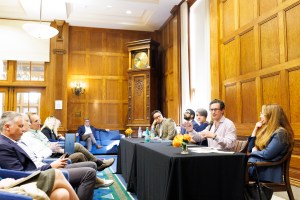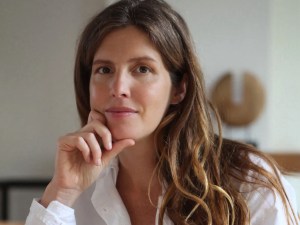Harvard researchers stop, restart, light
Albert Einstein theorized that light cannot travel faster than 186,282 miles per second. But he never said it couldn’t go slower. Lene Hau, a physics professor in the Faculty of Arts and Sciences at Harvard University, says Einstein would “probably be stunned” at the results of her recent experiments. Working in her laboratory at the Rowland Institute for Science, she and her colleagues slowed light 20 million-fold in 1999, to an incredible 38 miles an hour. They did it by passing a beam of light through a small cloud of atoms cooled to temperatures a billion times colder than those in the spaces between stars. Just recently, they were able to stop light completely. “In this odd state, light takes on a more human dimension; you can almost touch it,” Hau says. Inspired by Hau’s success at slowing light, researchers at the Harvard-Smithsonian Center for Astrophysics (CfA) used a similar technique to stop, then restart, a light beam.





